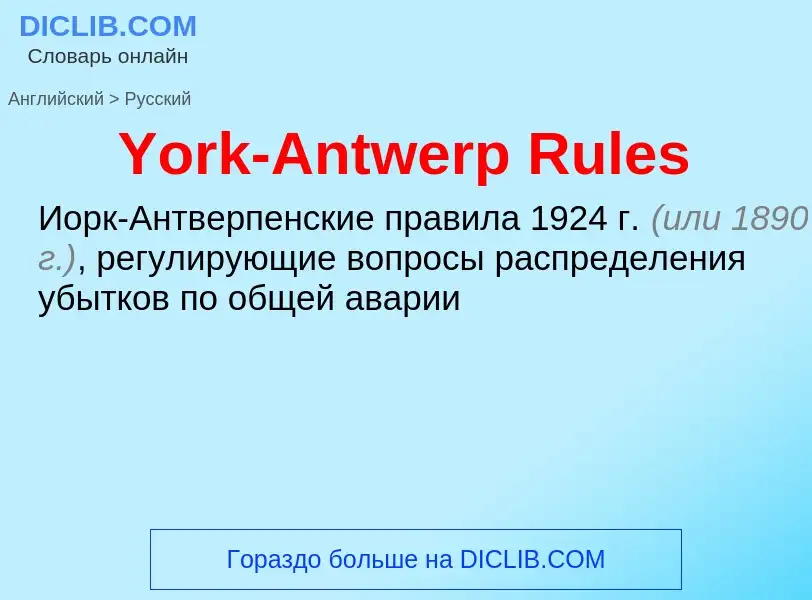Traduction et analyse de mots par intelligence artificielle ChatGPT
Sur cette page, vous pouvez obtenir une analyse détaillée d'un mot ou d'une phrase, réalisée à l'aide de la meilleure technologie d'intelligence artificielle à ce jour:
- comment le mot est utilisé
- fréquence d'utilisation
- il est utilisé plus souvent dans le discours oral ou écrit
- options de traduction de mots
- exemples d'utilisation (plusieurs phrases avec traduction)
- étymologie
York-Antwerp Rules - traduction vers russe
общая авария
Définition
Wikipédia
The law of general average is a principle of maritime law whereby all stakeholders in a sea venture proportionately share any losses resulting from a voluntary sacrifice of part of the ship or cargo to save the whole in an emergency. For instance, should the crew jettison some cargo overboard to lighten the ship in a storm, the loss would be shared pro rata by both the carrier and the cargo-owners.
Code of Hammurabi Law 238 (c. 1755–1750 BC) stipulated that a sea captain, ship-manager, or ship charterer that saved a ship from total loss was only required to pay one-half the value of the ship to the ship-owner. In the Digesta seu Pandectae (533), the second volume of the codification of laws ordered by Justinian I (527–565) of the Eastern Roman Empire, a legal opinion written by the Roman jurist Paulus at the beginning of the Crisis of the Third Century in 235 AD was included about the Lex Rhodia ("Rhodian law") that articulates the general average principle established on the island of Rhodes in approximately 1000 to 800 BC as a member of the Doric Hexapolis, plausibly by the Phoenicians during the proposed Dorian invasion and emergence of the purported Sea Peoples during the Greek Dark Ages (c. 1100–c. 750) that led to the proliferation of the Doric Greek dialect. The law of general average constitutes the fundamental principle that underlies all insurance.
In the exigencies of hazards faced at sea, crew members may have little time in which to determine precisely whose cargo they are jettisoning. Thus, to avoid quarreling that could waste valuable time, there arose the equitable practice whereby all the merchants whose cargo landed safely would be called on to contribute a portion, based upon a share or percentage, to the merchant or merchants whose goods had been tossed overboard to avert imminent peril. General average traces its origins in ancient maritime law, and the principle remains within the admiralty law of most countries.

